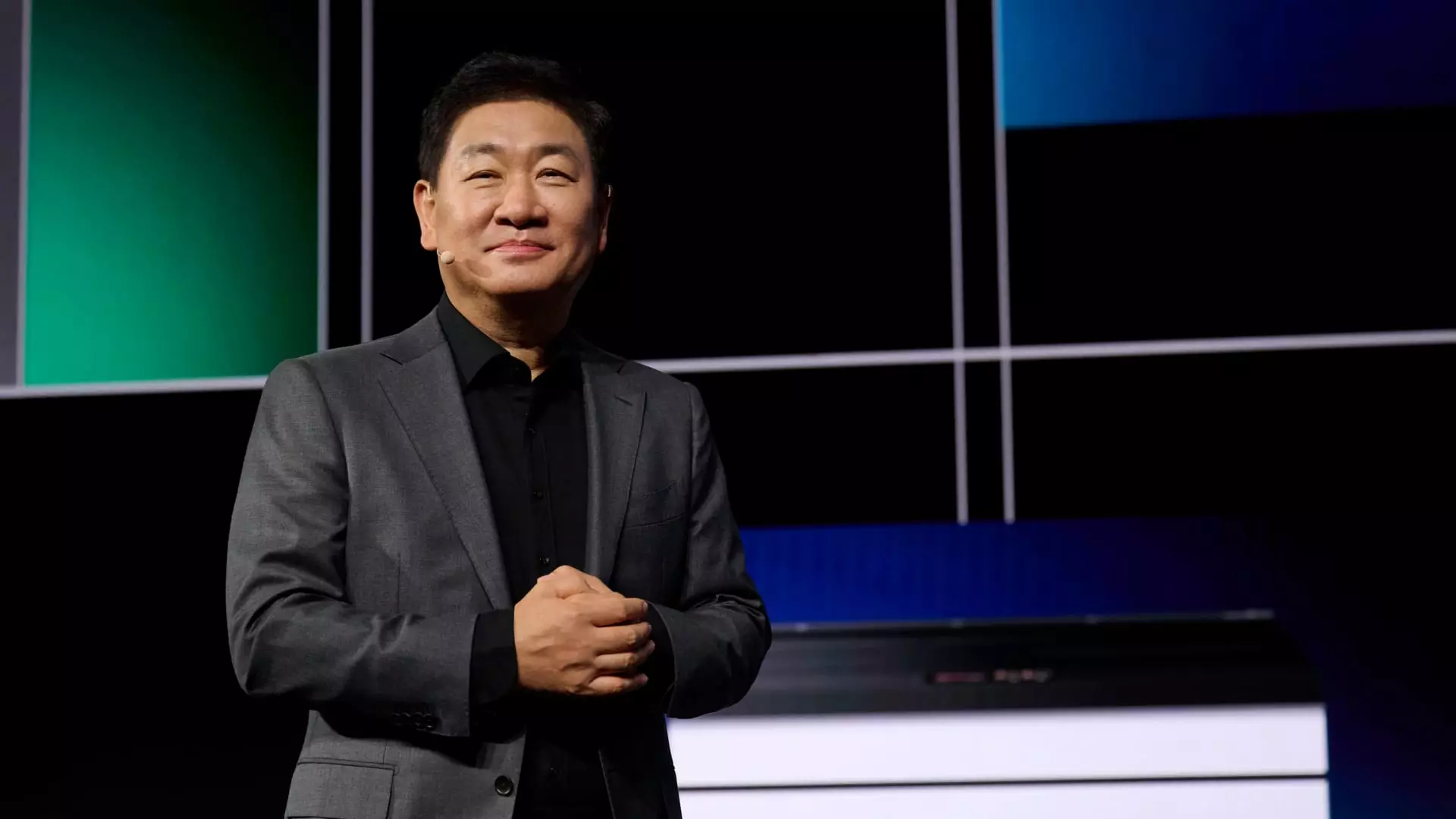In a competitive landscape where consumer electronics are rapidly evolving, Samsung Electronics is leveraging the power of on-device artificial intelligence (AI) to enhance its market position. Recognized as a leader in the smartphone and television sectors, Samsung aims to outperform the global growth rate for consumer electronics, which is projected to rise by a mere 3% in 2025. This ambition is articulated by Jong-Hee Han, the company’s chief executive officer, who emphasizes the importance of AI integration across a diversity of product lines, including household appliances and mobile devices.
Samsung anticipates a growth trajectory of 4-5% within its mobile devices segment. This comes at a time when the company faces increasing competition from formidable Chinese brands like Huawei and Xiaomi, who are encroaching on the high-end smartphone market with competitive pricing strategies. Han points out that while this rivalry can be ‘helpful’ for consumers, Samsung is focused on distinguishing itself through enhanced security and convenience features instead of pursuing price wars. This strategic focus on differentiation is crucial as it reflects a broader trend in consumer behavior that favors value and innovation over mere affordability.
Samsung’s bold initiative to incorporate AI into everyday products is evident in its latest offerings. By equipping fridges, washing machines, and robotic vacuum cleaners with AI chips, the company is not only enhancing functionality but also paving the way for future smart home integration. Samsung’s flagship smartphone models, such as the Galaxy S24 series, showcase innovative AI functionalities, including the ability to provide real-time translation for international calls. These advancements are not just technical upgrades but signify a substantial shift in how users interact with their devices, ultimately aiming to make technology more user-friendly and intuitive.
Despite Samsung’s strengths, it does face significant challenges. The company has experienced setbacks, particularly in the memory chip sector, where it was once the leading supplier. Recent struggles to keep pace with competitors such as SK Hynix have surfaced as Samsung falls behind in the supply of crucial high bandwidth memory (HBM) chips, which are integral to the operations of AI technologies. Han acknowledged these competitive dynamics, indicating a pressing need for strategic adjustments and improvements to regain its former leadership status.
As Samsung prepares to announce its financial results for the fourth quarter, analysts predict its operating profit will reach approximately 8.2 trillion won ($5.6 billion). This figure, while representing a recovery from the previous year, signals a decline from prior quarters, illustrating the volatile nature of the tech market. In acknowledgment of past underperformance, Samsung recently underwent a significant leadership shuffle, appointing Jun Young-hyun co-CEO. This adjustment is part of a broader restructuring aimed at revitalizing the company’s strategy and operational effectiveness.
With shareholder interests at the forefront, Samsung is initiating various strategies to enhance returns, including a noteworthy 10-trillion won share buyback program. This initiative is viewed as a stabilizing force in the face of stock price fluctuations. Despite this proactive approach, concerns linger regarding potential delays in securing essential approvals for HBM chips from industry leaders like Nvidia, which could impede progress in the memory business.
Samsung Electronics is at a pivotal juncture. While the integration of AI into product offerings represents a forward-thinking approach, the company must navigate significant competitive pressures and mitigate operational challenges within the semiconductor market. By prioritizing innovation and strategic differentiation, Samsung can not only enhance its market position but also reaffirm its commitment to technological leadership in the ever-evolving landscape of consumer electronics. The outcomes of Samsung’s efforts in the coming months will be critical in determining its ability to maintain relevance and drive shareholder value in an increasingly competitive marketplace.

